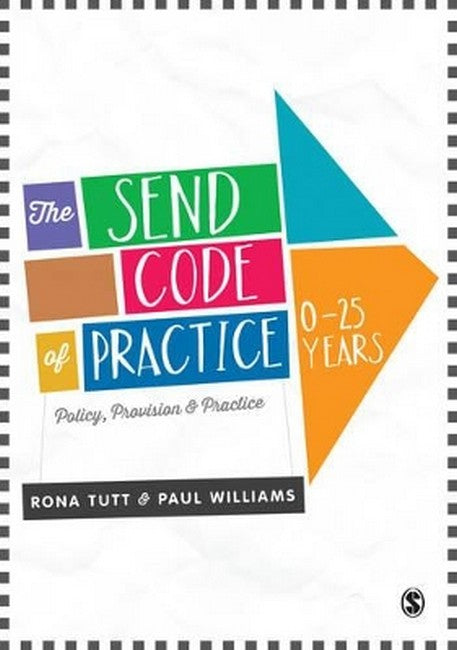Dr Rona Tutt OBE has taught pupils of all ages in state and independent, day and residential, mainstream and special schools. She has been a winner of the Leadership in Teaching Award, received an Outstanding Reviewer Award for her work on the International Journal of Educational Management and an OBE for her services to special needs education. She is a Past President of the National Association of Head Teachers (NAHT) and continues to be involved in their work, particularly in the field of SEND. Since moving on from headship, Rona she has been in constant demand as a speaker, reviewer, writer and judge. She has been on the Expert Reference Group of the Autism Education Trust (AET) since its inception and was the Interim Chair of Hertfordshire's All-Age Autism Partnership Board from April 2015- March 2016. In the same year, she was asked to be on the Strategic Advisory Group for 'Kids,' a charity for disabled young people and their families and to be their writer for the DfE- funded project Making it Personal, which is known as MIP3. She represents NAHT on the Special Education Consortium (SEC) (an umbrella group for over 30 organisations involved in SEN & disability); the Joint Unions Group on SEN Issues; and the National SEND Forum (NSENDF). Rona is vice chair of governors at two schools, one is a secondary school for pupils who have moderate learning difficulties (MLD), autism, and speech, language and communication needs (SLCN). The other is an all-age school for profoundly deaf pupils, where many pupils have British Sign Language (BSL) as their first language rather than English. Having trained originally as a Teacher of the Deaf, Rona is working through her exams in BSL and learning about deaf culture. Rona is the author of: 'Every Child Included,' (2007); she co-authored 'Educating Children with Complex Conditions - understanding overlapping and co-existing developmental disorders (Dittrich and Tutt 2008); wrote 'Partnership Working to Support Special Educational Needs and Disabilities in 2010; co-authored How Successful Schools Work - The Impact of Innovative School Leadership (Tutt and Williams 2012) and 'The SEND Code of Practice: 0-25 years' (Tutt and Williams 2015). Paul Williams was born in Newcastle upon Tyne, but has been a resident of London since becoming a teacher in 1973 and working in Inner London comprehensive schools until 1987. He was an advisory teacher with ILEA until 1989, after which he was a deputy head until 1992. He has been a head teacher since 1992 of two London special schools - most recently in Harrow. Paul is a national leader of education (NLE) and his school is a national support school (NSS). He is chair of the Harrow's Alternative Provision Governing Body and vice-chair of Harrow Mencap. Paul has been a member of NAHT's National Executive since 2006 and has chaired the Association's SEND Committee since 2008. He has been involved with a wide range of national reviews, consultations and developments. He gave evidence to Lord Bew's Independent review of Key Stage 2 testing, assessment and accountability, was involved in the review of the national curriculum, and has contributed to the All Party Parliamentary Group on Autism (APPGA). Paul attends regular meetings with Ofsted and the DfE, most recently in connection with how pupils with SEND are to be assessed under the new national curriculum, and the Independent review of standards for teaching assistants. This is the second book that Paul and Rona have co-authored, the first being How Successful Schools Work: The Impact of Innovative School Leadership, which was published in 2012.
Request Academic Copy
Please copy the ISBN for submitting review copy form
Description
PART ONE: Policy How the SEN Framework Changed The Implications of the Children and Families Act (2014) The SEND Code of Practice: 0-25 years (2014) PART TWO: Provision Newer Patterns of Provision for SEN Local Authorities Working With Schools to Increase Provision Provision Across the Services and up to 25 Years PART THREE: Practice Meeting SEN in Mainstream Meeting SEN in Specialist and Alternative Provision Developing the Workforce CONCLUSIONS
There are a number of case studies to illustrate points and chapters include references to further reading that are detailed and supportive. This is a useful resource for all professionals working in the field. It is well-written and informative, and successfully meets the needs of multi-disciplinary teams. -- Mary Mountstephen

